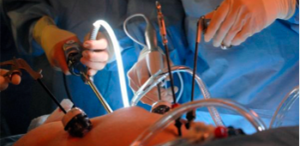
Following bariatric surgery, most patients enjoy successful weight loss and a healthy new lifestyle. Unfortunately, some can experience complications, including nausea, vomiting, or abdominal discomfort.
Dr. Liza María Pompa González can perform revision bariatric surgery for patients at LIMARP®, serving Tijuana, MX and San Diego, CA. Read on to learn more about revision bariatric surgery for the inability to tolerate foods.
Symptoms of a Failed Bariatric Surgery
There are certain symptoms that can develop if you have complications after your weight loss surgery. Your bariatric surgery may have failed if you experience:
- Vomiting after almost every meal
- Intolerance for solid or fibrous foods, such as meats or salad
- Chronic pain just below the breastbone
- Dumping syndrome, stomach cramping, or chronic diarrhea
- An increased capacity for food
- Chronic reflux
- Non-healing ulcers
It is important to note that each patient is unique, and can therefore experience different symptoms. If you suspect a failed bariatric procedure, the first thing you should do is call your nutritionist and your surgeon. It is also recommended that you begin keeping a food journal, so that your medical team can rule out any non-compliance concerns.
Reasons for a Failed Bariatric Surgery
If you are following all dietary and exercise guidelines and you are still having digestive issues, then you may have experienced a medical complication. There are several reasons this can occur. Some include:
- A Slipped Band: If you had banding surgery and the gastric band has slipped, it can damage the stomach tissue and lead to nausea and vomiting.
- Fistula Formation: If an opening, or fistula, develops between the stomach pouch and the bypassed stomach, it can result in rapid heart rate, fever, or abdominal pain.
- Leaking Staple Lines: Should a leak occur around the staple sites, it can cause back pain, pelvic pressure, fever, hiccups, rapid heart rate, or abdominal pain.
- Scar Tissue: Strictures can result in narrowed passages, which can significantly affect the way food moves through the digestive tract.
Even if you are not experiencing nausea, vomiting, or abdominal pain, any symptoms should be evaluated by your surgeon. In addition to food intolerance, these complications can lead to malabsorption, osteoporosis, and anemia.
Revisions after Gastric Bypass Surgery
If you are experiencing medical complications following gastric bypass, it is important to consult your surgeon. Because the reasons for failure are often varied, approaches to treatment can be quite different. Once Dr. Pompa reviews your symptoms and performs an examination, she can help you determine an appropriate next step.
Revisions after Lap Band Surgery
In cases where the band has slipped, eroded, or caused other issues, most patients decide to have it removed and pursue another type of bariatric surgery, such as gastric bypass. In some cases, the band can be replaced. Your surgeon can help you decide which option will provide the most optimal results for you.
Revisions after Gastric Sleeve
If you notice chronic abdominal discomfort or digestive issues following gastric sleeve surgery, speak with your surgeon about alternative treatments. Some patients will undergo conversion to the duodenal switch. However, the majority of patients will benefit from conversion to gastric bypass.
Learn More about Revision Bariatric Surgery
If you have undergone bariatric surgery in the past and are experiencing symptoms of nausea, vomiting, or severe abdominal pain, schedule an appointment at LIMARP®. We can help you alleviate your discomfort and improve your quality of life. Call our office toll-free at (866) 313-5750 or contact us online.


